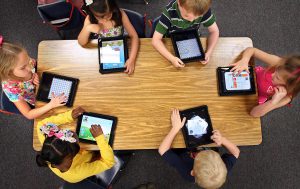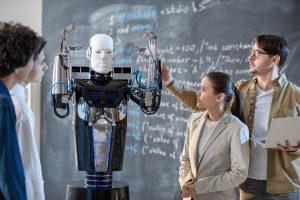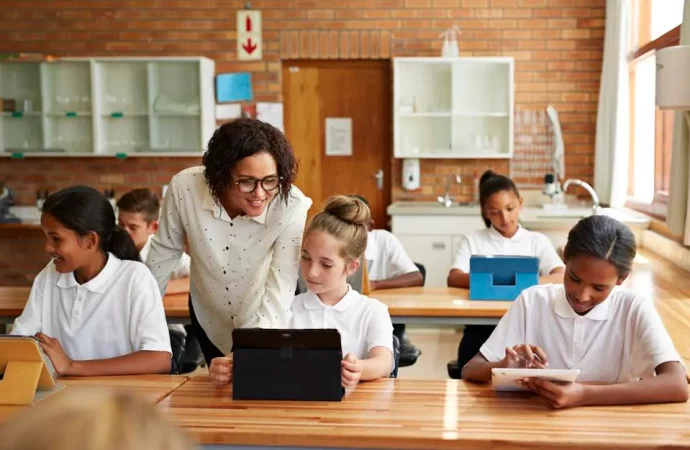Introduction: In today’s rapidly evolving world, education stands at the forefront of change. The future classroom is not just a physical space but a dynamic environment where innovation meets education, shaping the minds of tomorrow. This article delves into the exciting innovations driving future-focused education, exploring how these advancements are reshaping traditional learning paradigms. Learning
Introduction:
In today’s rapidly evolving world, education stands at the forefront of change. The future classroom is not just a physical space but a dynamic environment where innovation meets education, shaping the minds of tomorrow. This article delves into the exciting innovations driving future-focused education, exploring how these advancements are reshaping traditional learning paradigms.
Learning Environment:
In the future classroom, technology serves as a powerful catalyst for learning. From interactive whiteboards to virtual reality simulations, educators leverage a myriad of tools to engage students in immersive learning experiences. By integrating technology into lesson plans, teachers can cater to diverse learning styles, fostering a more inclusive and interactive learning environment.
Personalized Learning Paths: Tailoring Education to Individual Needs:

Image by: Yandex
Gone are the days of one-size-fits-all education. In the future classroom, personalized learning takes center stage, allowing students to embark on individualized learning journeys tailored to their unique strengths and interests. Adaptive learning platforms utilize artificial intelligence to analyze student data and deliver customized lesson plans, ensuring that every student receives the support they need to thrive.
Collaborative Spaces: Fostering Creativity and Innovation:
Collaboration lies at the heart of future-focused education. Modern classrooms are designed to facilitate teamwork and creativity, providing students with collaborative spaces where they can brainstorm ideas, solve problems, and work on projects together. By encouraging peer-to-peer learning and collaboration, educators nurture essential 21st-century skills such as communication, critical thinking, and teamwork.
Cultivating Digital Literacy: Navigating the Information Age:
In an era defined by information abundance, digital literacy is paramount. The future classroom equips students with the skills needed to navigate the digital landscape responsibly, teaching them how to critically evaluate sources, discern fact from fiction, and protect their privacy online. By instilling digital literacy from an early age, educators empower students to become informed and responsible digital citizens.
Equity and Inclusivity:

Image by: Yandex
One of the key tenets of future-focused education is its emphasis on equity and inclusivity. By providing all students with access to high-quality education, regardless of their background or socioeconomic status, it helps bridge the opportunity gap and promote social mobility. In doing so, it creates a more equitable society where everyone has the chance to succeed.
Empowering Educators: Professional Development in the Digital Age:
As education evolves, so too must the role of educators. In the future classroom, professional development takes on new dimensions, providing teachers with ongoing training and support to navigate emerging technologies and pedagogical approaches. By investing in the professional growth of educators, schools ensure that teachers are equipped with the knowledge and skills needed to excel in an ever-changing educational landscape.
The Future Classroom: Innovations in Future-Focused Education:
The future classroom is a dynamic and evolving space, where innovation and education converge to shape the future of learning. By embracing technology, personalized learning, collaborative spaces, and digital literacy, educators are redefining traditional notions of education, empowering students to thrive in an increasingly complex and interconnected world.
Embracing Technology for Enhanced Learning:

Image by: Yandex
In the future classroom, technology serves as a powerful catalyst for learning. From interactive whiteboards to virtual reality simulations, educators leverage a myriad of tools to engage students in immersive learning experiences. By integrating technology into lesson plans, teachers can cater to diverse learning styles, fostering a more inclusive and interactive learning environment.
Conclusion:
As we look ahead to the future of education, one thing is clear: the future classroom holds immense potential to shape the minds of tomorrow. By embracing innovation, collaboration, and personalized learning, educators are paving the way for a brighter future, where every student has the opportunity to thrive and succeed.
_______________________________________________________________________
FAQs
What role does technology play in the future classroom?
Technology serves as a catalyst for learning in the future classroom, offering tools and resources to enhance engagement and interactivity.
How does personalized learning benefit students?
Personalized learning allows students to pursue individualized learning paths tailored to their unique needs, fostering a deeper understanding of subjects and promoting self-directed learning.
Why is collaboration important in the future classroom?
Collaboration fosters creativity, teamwork, and problem-solving skills, preparing students for success in the modern workforce.
What skills are emphasized in future-focused education?
Future-focused education emphasizes critical thinking, communication, collaboration, creativity, and digital literacy.
How do educators stay updated on emerging technologies?
Educators participate in ongoing professional development programs to stay updated on emerging technologies and pedagogical practices.
How does digital literacy contribute to student success?
Digital literacy equips students with the skills needed to navigate the digital world responsibly, empowering them to become informed and ethical digital citizens.
















